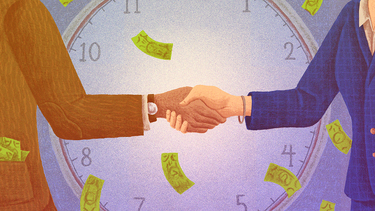All Insights Articles
Coronavirus Could Hobble Chinese Economy at a Precarious Moment
We asked Stephen Roach, a senior fellow at the Yale Jackson Institute for Global Affairs and the former chairman of Morgan Stanley Asia, what the epidemic could mean for the economy in China and the rest of the world.

Surprise Billing for Out-of-Network Physicians Costs Billions
After patients are treated at in-network hospitals, they often receive large, unexpected bills from out-of-network doctors. A new study finds that out-of-network charges from anesthesiologists, pathologists, radiologists, and assistant surgeons increase spending by $40 billion annually.

Aspiring to Be the Next Silicon Valley? Think Twice
A study by Yale SOM researchers suggests that when venture capital funding in a metropolitan area increases, industries with customers outside the region suffer and income inequality widens.

Should Government Run on Rules or Principles?
Janhabi Nandy ’09, an official at the Treasury Board of Canada, makes the case that a nuanced, principle-based approach can make government more effective.

New Study Shows that Trust Can Last
A new study co-authored by Yale SOM’s Florian Ederer explores how the trust we place in one another is affected by our ability to communicate and by the passage of time.

Why David Calhoun Is The Right Choice for Boeing Right Now
Yale SOM’s Jeffrey Sonnenfeld writes that the company made the right move by turning to a knowledgeable insider instead of making a clean sweep.

The Suleimani Killing and the New Order of Armed Conflict
We asked Paul Bracken, a professor of management and political science, what the capability to pinpoint enemy leaders from afar in real time means for modern warcraft.

How Meritocracy Worsens Inequality—and Makes Even the Rich Miserable
Yale Law School’s Daniel Markovits argues that rather than democratizing American society, meritocracy has contributed to increasing inequality and the decline of the middle class.

Even Small Businesses Need Corporate Governance
For startups and family businesses, establishing a professionalized, independent board and other aspects of corporate governance tend to be far down the priority list. Two experts explain why investing in corporate governance is critical to long-term success.

What Does Carlos Ghosn’s Escape from Japan Say about the State of Global Commerce?
Yale SOM’s Jeffrey Sonnenfeld writes that while global executives may be cheering Carlos Ghosn’s dramatic escape, they should worry about the trends behind his legal peril.
